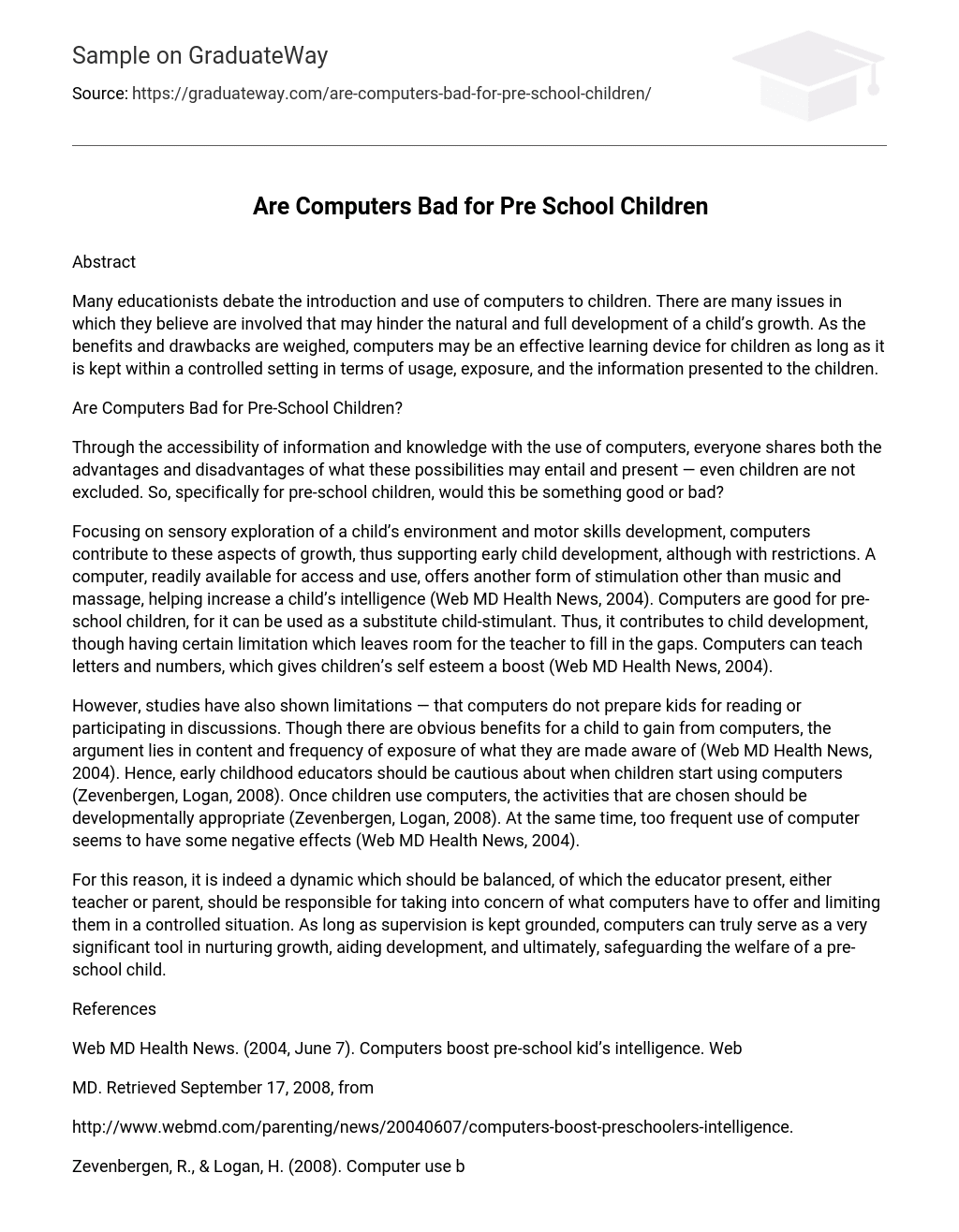Abstract
Many educationists debate the introduction and use of computers to children. There are many issues in which they believe are involved that may hinder the natural and full development of a child’s growth. As the benefits and drawbacks are weighed, computers may be an effective learning device for children as long as it is kept within a controlled setting in terms of usage, exposure, and the information presented to the children.
Are Computers Bad for Pre-School Children?
Through the accessibility of information and knowledge with the use of computers, everyone shares both the advantages and disadvantages of what these possibilities may entail and present — even children are not excluded. So, specifically for pre-school children, would this be something good or bad?
Focusing on sensory exploration of a child’s environment and motor skills development, computers contribute to these aspects of growth, thus supporting early child development, although with restrictions. A computer, readily available for access and use, offers another form of stimulation other than music and massage, helping increase a child’s intelligence (Web MD Health News, 2004). Computers are good for pre-school children, for it can be used as a substitute child-stimulant. Thus, it contributes to child development, though having certain limitation which leaves room for the teacher to fill in the gaps. Computers can teach letters and numbers, which gives children’s self esteem a boost (Web MD Health News, 2004).
However, studies have also shown limitations — that computers do not prepare kids for reading or participating in discussions. Though there are obvious benefits for a child to gain from computers, the argument lies in content and frequency of exposure of what they are made aware of (Web MD Health News, 2004). Hence, early childhood educators should be cautious about when children start using computers (Zevenbergen, Logan, 2008). Once children use computers, the activities that are chosen should be developmentally appropriate (Zevenbergen, Logan, 2008). At the same time, too frequent use of computer seems to have some negative effects (Web MD Health News, 2004).
For this reason, it is indeed a dynamic which should be balanced, of which the educator present, either teacher or parent, should be responsible for taking into concern of what computers have to offer and limiting them in a controlled situation. As long as supervision is kept grounded, computers can truly serve as a very significant tool in nurturing growth, aiding development, and ultimately, safeguarding the welfare of a pre-school child.
References
Web MD Health News. (2004, June 7). Computers boost pre-school kid’s intelligence. Web
MD. Retrieved September 17, 2008, from
http://www.webmd.com/parenting/news/20040607/computers-boost-preschoolers-intelligence.
Zevenbergen, R., & Logan, H. (2008). Computer use by preschool children: Rethinking
practice as digital natives come to preschool. Australian Journal of Early Childhood, 33 (1), 37–44. Retrieved September 17, 2008, from http://www.earlychildhoodaustralia.org.au/index2.php?option=com_content&do_pdf=1&id=1034





